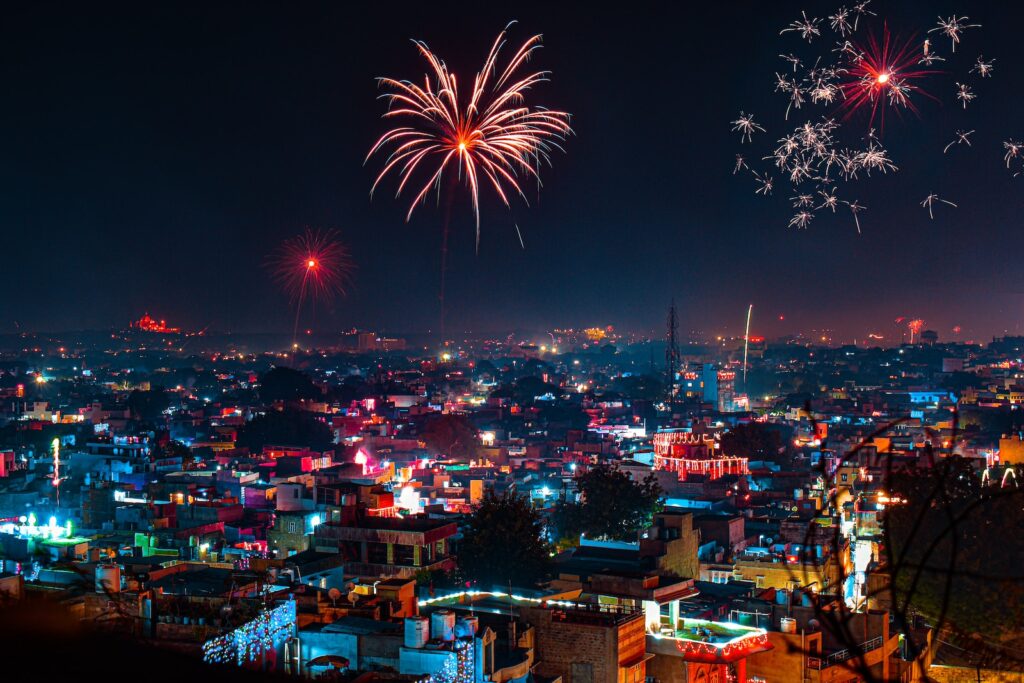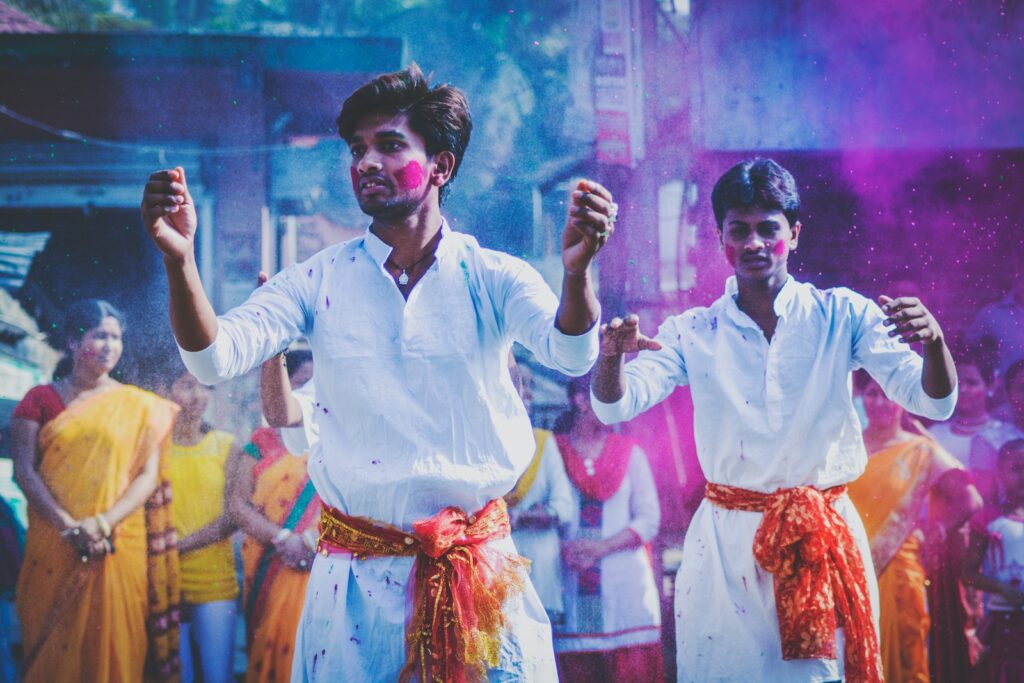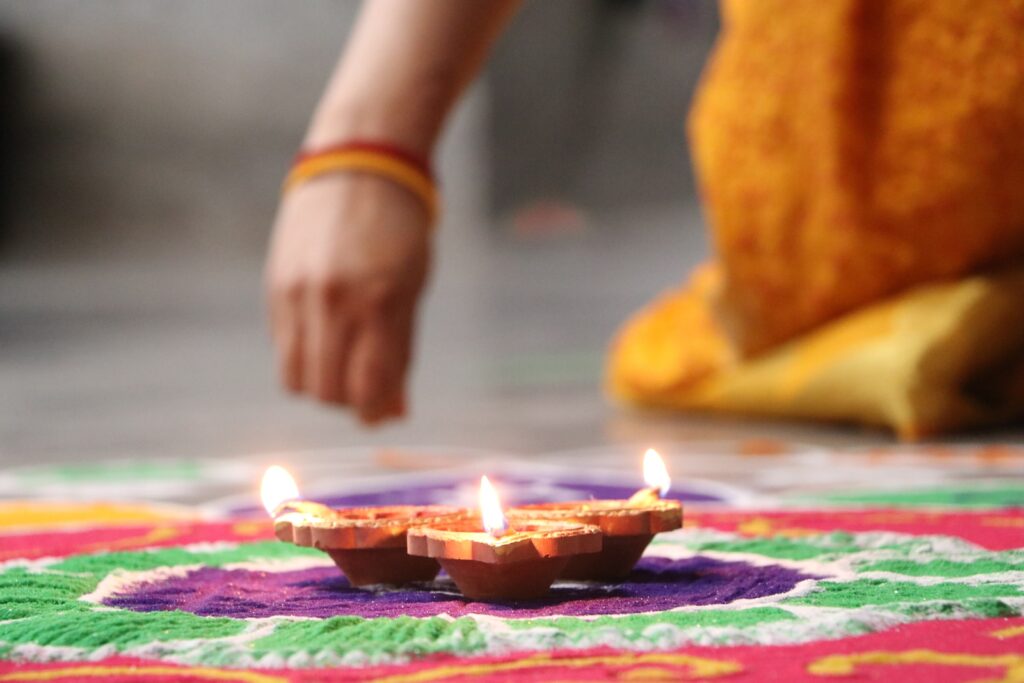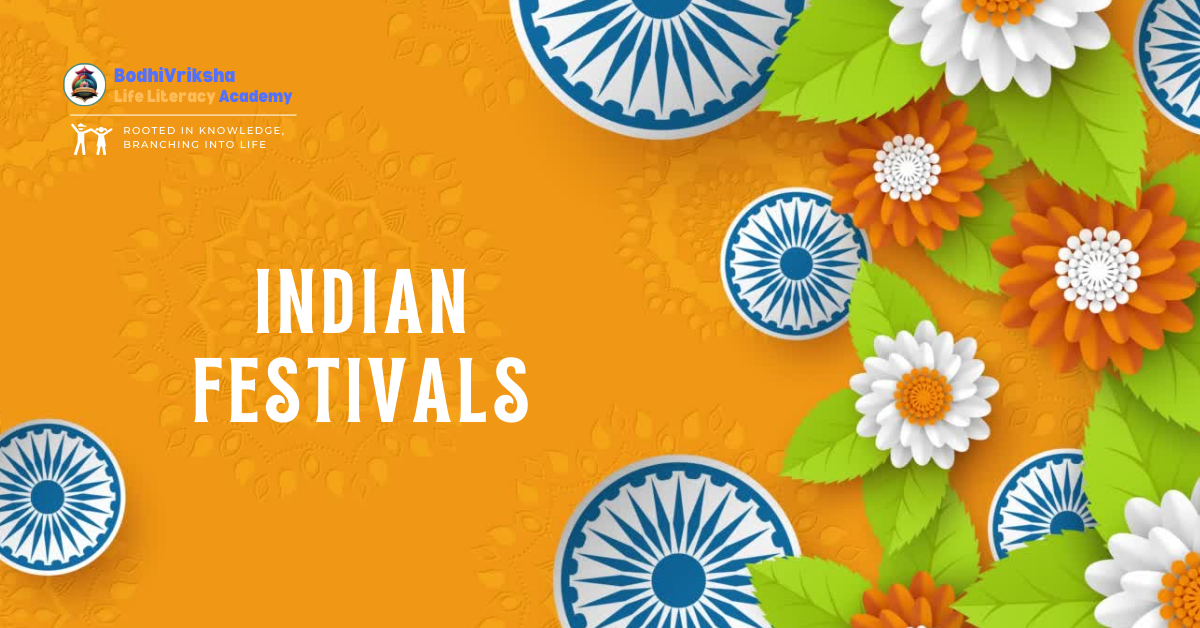India, a land of diverse cultures, languages, and traditions, is synonymous with vibrant and joyous celebrations. The importance of festivals in Indian culture and society is woven into the very fabric of its existence, serving as a rich tapestry that binds communities and generations together.
“Festivals in India are not just occasions; they are the heartbeat of our culture, pulsating with traditions, colors, and the rhythm of togetherness. They are threads that weave our diverse communities into a tapestry of unity, celebrating the essence of being Indian.” — Amitabh Bachchan, Legendary Indian Actor and Cultural Icon

Indian Festivals – Celebration of Life
Cultural Mosaic: Celebrating Diversity
India’s cultural landscape is a mosaic of traditions, each community contributing its unique colors to the vibrant palette of the nation. Festivals, with their roots deep in history and mythology, become a canvas where this diversity is not just celebrated but embraced. From Diwali, celebrated with lights and fervor, to Eid, marking the end of Ramadan with feasts and prayers, each festival reflects the cultural richness and pluralism that define India.
Religious Significance: Connecting with the Divine
One cannot delve into the importance of Indian festivals without recognizing their deep religious significance. Festivals often mark auspicious occasions in various religious calendars, offering devotees an opportunity to connect with the divine. Whether it’s the joyous dance of Lord Krishna during Janmashtami or the solemn prayers of Eid al-Fitr, these celebrations bridge the earthly and the divine, fostering a sense of spiritual belonging.
Social Harmony: Bridging Divides
Festivals serve as bridges that span social divides, fostering unity and harmony. Regardless of caste, creed, or economic status, people come together to celebrate. In the spirit of festivals like Holi, where vibrant colors erase societal boundaries, or Christmas, which brings communities together in a spirit of love and sharing, these occasions emphasize the common thread that unites all Indians.
Family Bonds: Strengthening Ties
At the heart of every festival is the celebration of family bonds. Whether it’s the warmth of a Diwali gathering, the joy of sharing sweets during Eid, or the togetherness of a Christmas feast, festivals provide moments for families to come closer. These occasions reinforce the importance of familial ties, creating memories that endure across generations.

Economic Impact: Nurturing Commerce
Festivals play a pivotal role in India’s economy, contributing significantly to commerce and trade. From the bustling markets during Diwali, where the exchange of gifts and sweets is a tradition, to the colorful bazaars of Holi, festivals create economic opportunities for artisans, businesses, and local markets. The economic impact of these celebrations ripples through various sectors, supporting livelihoods across the nation.
Festive Cuisine: A Gastronomic Delight
No discussion about Indian festivals is complete without a mention of the culinary delights that accompany them. Festivals are synonymous with special dishes and sweets, each region boasting its own gastronomic delights. From the rich and aromatic biryanis of Eid to the array of sweets during Navratri, festival cuisine is a feast that tantalizes the taste buds and adds a flavorful dimension to the celebrations.
Community Spirit: Volunteering and Giving Back
Many Indian festivals emphasize the spirit of giving and community service. Whether it’s the concept of seva (selfless service) during Gurupurab or the distribution of food and donations during Ramadan, festivals inspire acts of kindness and generosity. These gestures not only strengthen community bonds but also instill a sense of social responsibility among individuals.
Time for Reflection: Renewal and Resolutions
Certain festivals in the Indian calendar mark moments of reflection and renewal. Diwali, the festival of lights, symbolizes the triumph of light over darkness and good over evil. It’s a time for introspection, setting new resolutions, and letting go of negativity. Festivals become markers in time where individuals and communities collectively pause to reflect on the values that define them.

Conclusion: A Symphony of Celebration
In the grand symphony of Indian culture and society, festivals play a harmonious tune that resonates across the nation. They are not merely events on a calendar but integral chapters in the story of India—a story of unity in diversity, of traditions passed down through generations, and of a collective celebration that transcends boundaries. The importance of festivals in Indian culture and society lies not just in the rituals and customs but in the emotions they evoke, the connections they forge, and the shared joy they bring to millions.

